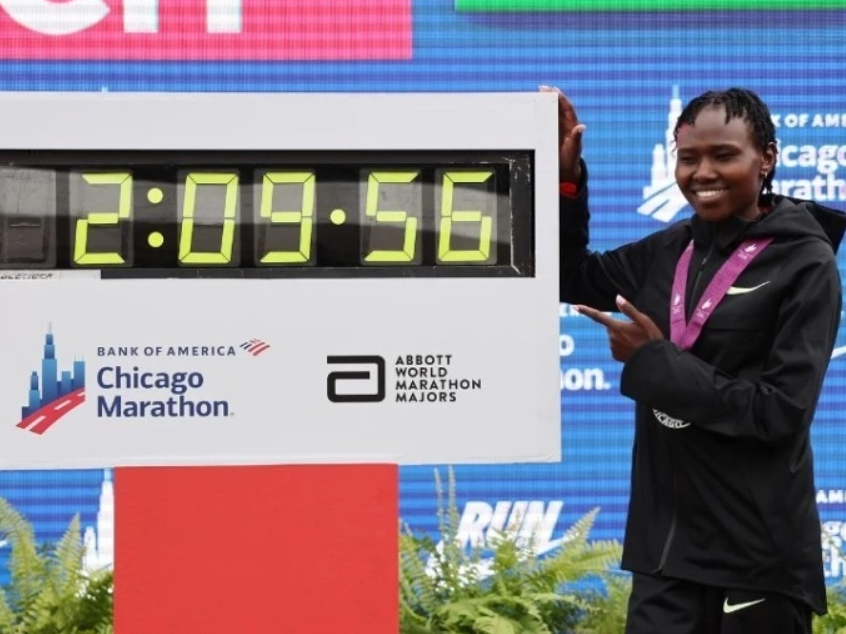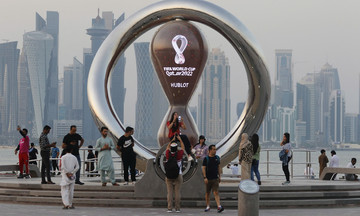The Athletics Integrity Unit (AIU) announced Chepngetich's provisional suspension on July 17th after hydrochlorothiazide (HTCZ) was found in a urine sample collected on 14/3/2025.
HTCZ is a prohibited substance in the SS class (diuretics and masking agents) and is banned at all times. It is often used as a masking agent. The minimum reporting threshold for this substance is 20 ng/mL in urine; Chepngetich's sample showed 3,800 ng/mL.
 |
Ruth Chepngetich set the women's world marathon record of 2 hours 9 minutes 57 seconds at the 2024 Chicago Marathon. Photo: Guardian |
AIU head Brett Clothier stated, "After months of investigation, the AIU today issued a Notice of Charge and imposed a provisional suspension."
A provisional suspension is not mandatory under world anti-doping rules. However, on April 19th, Chepngetich voluntarily accepted a provisional suspension while the AIU investigated. Chepngetich has the right to a hearing before a disciplinary panel.
There is no information yet on how long the Kenyan runner's suspension will last.
At the 2024 Chicago Marathon on October 16th, Chepngetich dominated and finished first with a time of 2 hours 9 minutes 57 seconds, shattering the previous record of 2 hours 11 minutes 53 seconds set by Tigist Assefa (Ethiopia) at the 2023 Berlin Marathon. Chepngetich became the first female athlete to complete the 42km distance in under 2 hours 10 minutes—a feat many considered impossible.
Following her sub-2:10 performance, Chepngetich faced accusations of cheating from an American journalist. Athletics Kenya (AK) demanded an apology from the journalist, emphasizing that the 30-year-old runner, like many other elite athletes in major competitions, underwent numerous doping tests both before and after the race. AK considered this standard procedure at large-scale events like the Chicago Marathon, and Chepngetich was allowed to compete only after passing these tests.
By December 2024, Chepngetich's marathon record was officially recognized, implying her performance was "clean." World Athletics (WA) follows a strict process for ratifying all world records. Key steps include certifying the course, timing accuracy, anti-doping tests, and independent verification. Of these, the anti-doping process is the longest, often taking several months for test results to come back from the laboratory.
Despite the official recognition, doubts about Chepngetich's achievement persisted. Former head coach of Athletics Canada, Peter Eriksson, launched an online petition demanding that three governing bodies—the World Anti-Doping Agency (WADA), WA, and the AIU—release Chepngetich's tests and records, believing her 2 hours 9 minutes 57 seconds time "exceeded the limits of women's potential."
Eriksson also called on these organizations to implement urgent measures to eliminate doping in sports: publicly identify and suspend coaches and agents associated with athletes who test positive for doping; increase testing, particularly in East Africa; and immediately suspend all athletes from competition for the remainder of the calendar year from any country with more than 10 athletes testing positive during the year.
Hong Duy (via Canadian Running Magazine)












